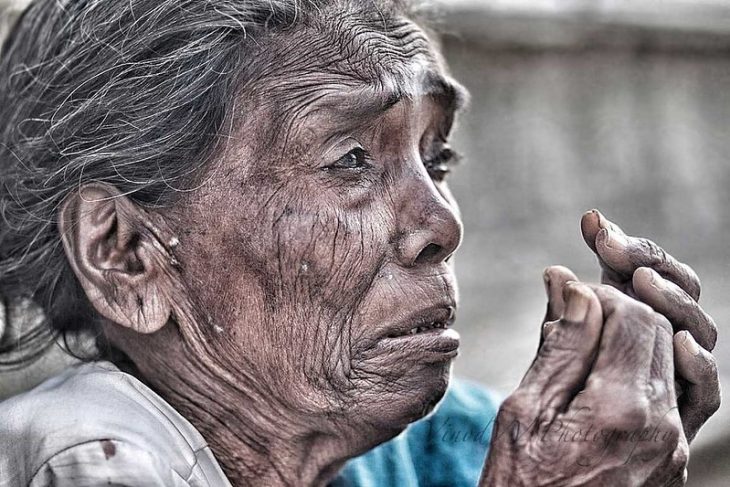
Life is a fascinating blend of joy and sorrow, hope and despair, love and loss. Yet, to better appreciate the light, we must acknowledge the existence of the dark. In this article, we’ll explore 18 depressing facts about the world we live in, not to dishearten you, but to foster a sense of empathy and understanding about the struggles that pervade our world. So, brace yourself for a journey that promises to be as insightful as it is poignant.
Global Poverty
Depressingly, almost 10% of the world’s population, around 770 million people, live in extreme poverty, surviving on less than $1.90 a day. This grim reality underscores the enormous socioeconomic disparities that persist in our world.
Hunger Crisis
Around 690 million people worldwide go to bed hungry each night. That’s almost 9% of the global population who are not sure where their next meal will come from, a haunting fact that underscores the urgency of food security initiatives.
Child Labor
An estimated 152 million children, aged 5-17, are engaged in child labor globally, often in hazardous conditions. These children are robbed of their childhood, their education, and their potential, a deeply depressing fact about the world we live in.
Climate Change
Climate change is one of the most pressing challenges of our time, affecting everything from weather patterns to ecosystems. By 2100, global temperatures could rise by 4.1 to 4.8 degrees Celsius, leading to potentially catastrophic impacts on life as we know it.
Extinction Rates
We are currently experiencing the worst spate of species extinction since the loss of the dinosaurs 65 million years ago. Between 200 and 2,000 extinctions occur every year, a depressing testament to the impact of human activities on the planet’s biodiversity.
Mental Health
Nearly one in four people in the world will be affected by mental or neurological disorders at some point in their lives. Yet, two-thirds of people with a known mental disorder never seek help from a health professional, often due to stigma, discrimination, and neglect.

Plastic Pollution
If current trends continue, our oceans could contain more plastic than fish by 2050. Plastic waste not only pollutes our seas and harms marine life, but it also enters the human food chain with unknown health effects.
Global Literacy
Despite progress in global literacy rates, there are still approximately 773 million illiterate adults worldwide, two-thirds of whom are women. This lack of basic reading and writing skills is a significant barrier to social and economic development.
Aging Population
By 2050, one in six people in the world will be over age 65, up from one in 11 in 2019. This aging population will place immense pressure on healthcare systems, pension plans, and social services worldwide.
The Burden of Disease
Non-communicable diseases, like heart disease, stroke, and diabetes, kill 41 million people each year, equivalent to 71% of all deaths globally. This burden is increasing, particularly in low-income and middle-income countries.
Child Mortality
Despite significant improvements, in 2019, 5.2 million children under age five died, mostly from preventable and treatable causes. That’s approximately 14,000 child deaths every day, a profoundly saddening statistic.
Cyberbullying
Around 37% of young people between the ages of 12 and 17 have been bullied online. This new form of bullying can have severe and long-lasting effects on victims, including depression, anxiety, and even suicidal thoughts.

Modern Slavery
It is estimated that 40.3 million people are in modern slavery, including 24.9 million in forced labor and 15.4 million in forced marriage. It means there are 5.4 victims of modern slavery for every 1,000 people in the world.
War and Conflict
Around 1% of the global population, or 79.5 million people, were forcibly displaced at the end of 2019 as a result of persecution, conflict, violence, human rights violations or events seriously disturbing public order.
Water Scarcity
By 2025, an estimated 1.8 billion people will live in areas plagued by water scarcity, with two-thirds of the world’s population living in water-stressed regions.
Antibiotic Resistance
Antibiotic resistance is one of the biggest public health challenges of our time. Each year in the U.S., at least 2.8 million people get an antibiotic-resistant infection, and more than 35,000 people die as a result.
Income Inequality
The world’s richest 1% have more than twice as much wealth as 6.9 billion people. Such extreme wealth concentration fuels economic, social and political instability.
Education Disparity
Globally, at least 258 million children, adolescents and youth between the age of 6 and 17 were out of school in 2018. This number has risen since the COVID-19 pandemic, which has exacerbated inequalities in access to education.

Final Word
While these 18 depressing facts can be hard to process, it’s important to remember that knowledge is power. Understanding these challenges is the first step toward creating solutions. So, let’s take this awareness and channel it into actions that uplift and create positive change. Because, despite the darkness, there’s always room for hope, resilience, and the indomitable spirit of humanity.
Was this page helpful?
Our commitment to delivering trustworthy and engaging content is at the heart of what we do. Each fact on our site is contributed by real users like you, bringing a wealth of diverse insights and information. To ensure the highest standards of accuracy and reliability, our dedicated editors meticulously review each submission. This process guarantees that the facts we share are not only fascinating but also credible. Trust in our commitment to quality and authenticity as you explore and learn with us.
